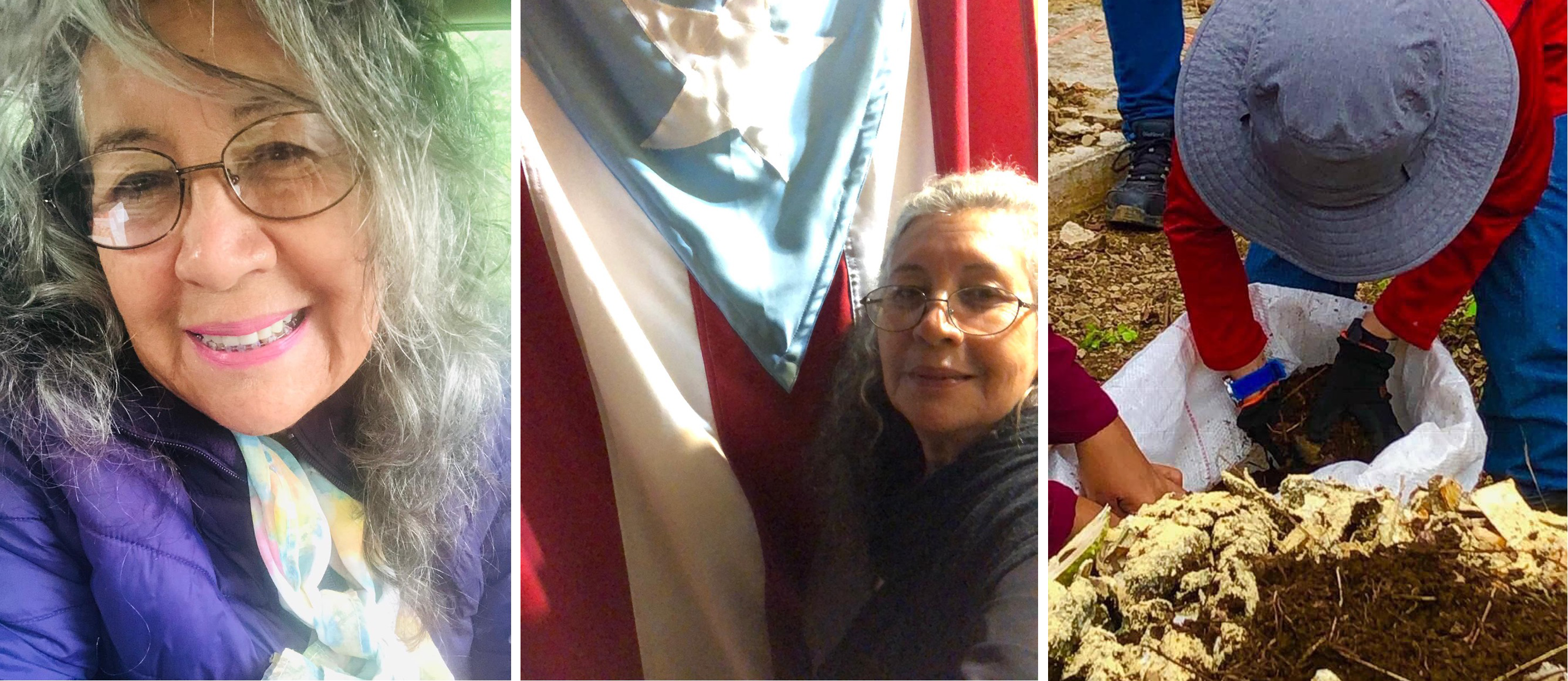“The harvest experience is one that heals human beings in multiple dimensions because it gives them power. The power of a human is to be able to transform reality. We can transform an environment full of garbage into one full of flowers and food. That’s power.”
 Below is an excerpt from AtmaGo’s Puerto Rico newsletter. Read on for a conversation with an agronomist, agriculture educator, and community leader on producing healthy food and cultivating community.
Below is an excerpt from AtmaGo’s Puerto Rico newsletter. Read on for a conversation with an agronomist, agriculture educator, and community leader on producing healthy food and cultivating community.
Community leaders, do you want to increase involvement in your community garden? We have tips for you from our conversations with experts. (Even if you don’t have a garden, please read on as the insights are useful for other community projects.)
We spoke with Dalma Cartagena, an agronomist and agriculture educator for more than 30 years, and a community leader in Orocovis, known as “the heart of Puerto Rico” for being a lush-green mountainous municipio located right in the center of the Island. Orocovis is home to 17 barrios, or subdivisions, and seven of them are considered marginalized communities whose citizens are experiencing a certain amount of social exclusion.
“Knowing how to produce healthy food should be considered a human right,” Dalma told us. As part of her work, she has developed community gardens and directed healthy food production workshops.
We asked her how she has managed to attract so many people with her projects and she replied: “I think there is a key to all this and it is to do things that bear fruit in a short time. Seeing the product of your effort in a relatively short time motivates people.”
We agreed that community participation is more easily achieved when people see a successful project underway and seek to be part of it. Newer projects are a bit harder to gain involvement, because people have yet to trust the change. As Mariny Vázquez, a leader in Naguabo and super-user of AtmaGo, says, “Community participation increases when you create trust in the community and that trust is achieved when you keep your promises to the community.”

“As soon as people see that the effort translates into something tangible, they are much more willing to put in their time and effort,” Dalma says “Time and effort are life – it is putting part of their life into something.”
Dalma gave an example of two projects that quickly bear fruit in a garden:
- the compost, which is easy. It’s created with fruit and vegetable peels, along with grasses and leaves, and is ready in about 3 months; and
- short-term crops, such as lettuce and coriander, which grow quickly and are ready to eat in 35 days.
Other crops can be beans, which take about 60 to 70 days to harvest. Afterwards, one can consider those that take more time such as yuca (cassava), celery and sweet potatoes, as well as pumpkins, since all of these are part of the Puerto Rican gastronomy.
Dalma also shared with us that “The harvest experience is one that heals human beings in multiple dimensions because it gives them power. The power of a human is to be able to transform reality. We can transform an environment full of garbage into one full of flowers and food. That’s power.” She added that working the land brings physical, spiritual, and mental benefits to people and that this in turn brings them happiness.
Before closing the conversation, Dalma shared with us a very important piece of wisdom. What if a project just doesn’t work?
“It is possible for a project to start and then be unable to continue, but a mark will always remain – an imprint, an experience that no one will be able to erase. It’s possible that the community was not prepared at that time, but the project remains in its history and its memory, and it can be retaken. Communities are like people, they grow and develop and maybe at that time it wasn’t ready, but when it is, it can go back and begin the project anew again.”
Dalma is proud to work for the healthy diet of Puerto Ricans and at Atma we are grateful for her sharing her wisdom with us. She is available to offer workshops and talks to your community.
